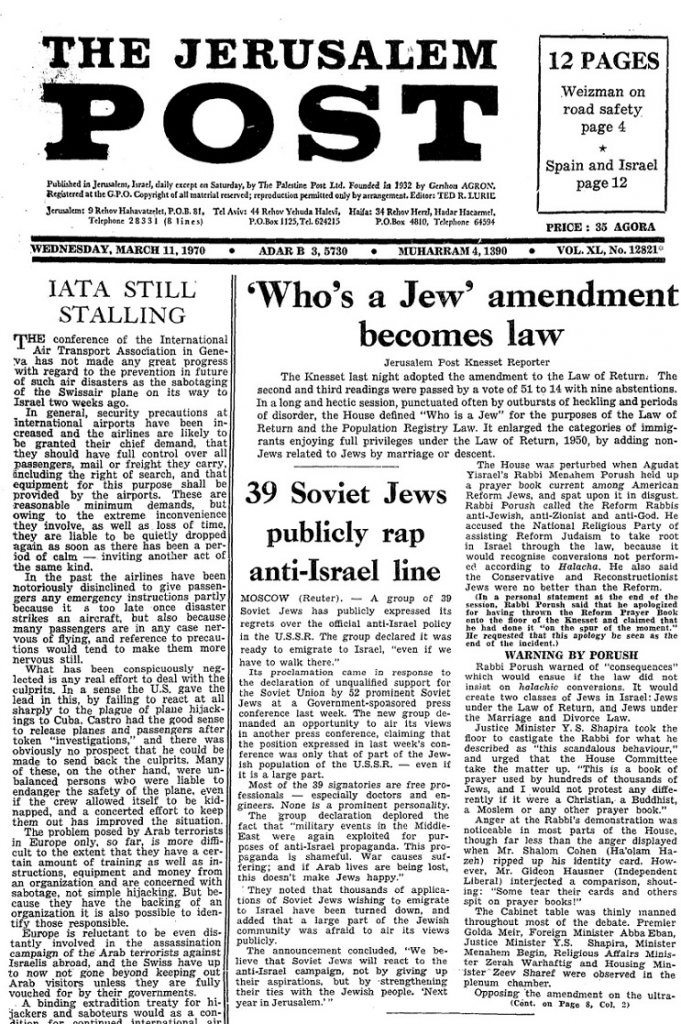
March 10, 1970
Israel’s Law of Return, which was originally passed in 1950, was amended to further define “Who is a Jew” and citizen eligibility in Israel. The amendment passed the second and third readings by a vote of 51-14 with nine abstentions. In February, Minister of Justice Yaakov-Shimshon Shapira presented the amendment, and the debate before its passage highlighted the distance between orthodox and secular views in Israel, as well the non-Orthodox movements in the Diaspora.
Two cases which reached Israel’s Supreme Court provided the impetus for defining “Who is a Jew” under the 1950 Law of Return. The first occurred in 1962 when Brother Daniel, a Carmelite monk who had been born a Jew named Oswald Rufeisen in Poland, converted to Catholicism while in hiding during the war. He then applied for Israeli citizenship under the Law of Return. Brother Daniel, who had been active in Zionist youth groups and had helped rescue Jews in Russia, claimed that, while Catholicism was his religion, Judaism was his nationality. While Israeli rabbinic authorities supported Rufeisen’s application on the grounds that, according to Jewish law, he was Jewish having been born to a Jewish mother, the Supreme Court rejected it on the grounds that a Jew who had embraced Christianity could no longer be considered a Jew. Despite the Court’s ruling, Brother Daniel became a naturalized citizen of Israel in August 1963.
The second case involved Jewish Israeli Naval Officer Benjamin Shalit, who had married a non-Jewish Scottish woman while serving abroad. The couple returned to Israel and had two children. When they went to register their children and apply for their identity cards, the Shalits wished to register the children as Jewish by nationality while leaving the religion designation blank. The Ministry of the Interior refused and insisted that both the religion and nationality designation be left blank. Shalit took the case to the Supreme Court which ruled in his favor 5-4. The Court argued that an individual clerk or even the Supreme Court could not decide who is or isn’t a Jew.
The result of the Shalit case led the Knesset to reexamine the issue of “Who is a Jew” under the Law of Return and the Population Registry Law. The amendment declared that a “Jew means a person who was born of a Jewish mother or who has become converted to Judaism and who is not a member of another religion.” The law also extended to children, grandchildren and spouses of Jews the right to citizenship under the Law of Return, provided that they were not born Jewish and converted to another religion. Much of the debate among the religious parties in Israel was that the amendment recognized Reform and Conservative conversions to Judaism that were performed outside the State of Israel.
The complete Law of Return amendment is found here: http://knesset.gov.il/review/data/eng/law/kns7_return_eng.pdf
